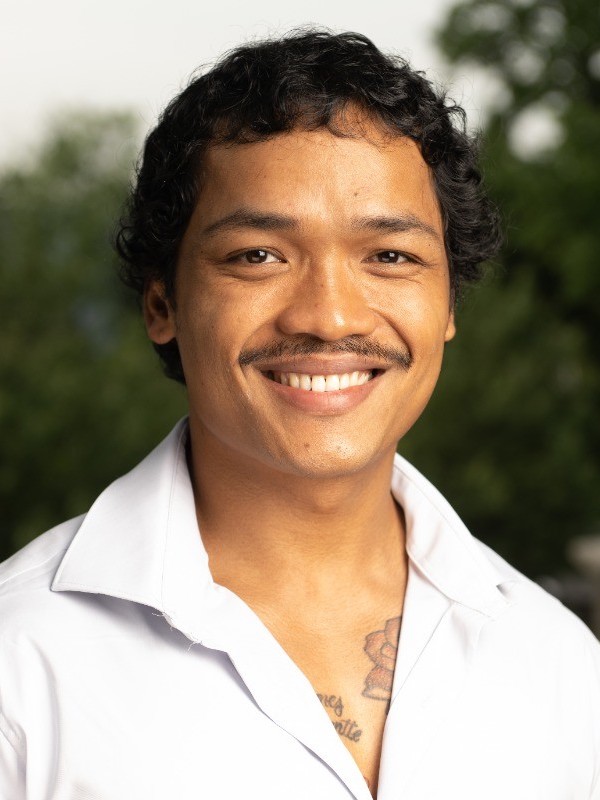Sayorn Chin
 Pronouns: he/him
Pronouns: he/him
Graduation year: 2017
Hometown: Phnom Penh, Cambodia
Currently living in: Easton, Pennsylvania
Current occupation: Assistant Professor of Economics (Tenure-Track), Lafayette College
What was your experience like at CC as an Economics major?
During my undergraduate years at CC, where I majored in Mathematical Economics, I thoroughly enjoyed the challenging courses developed by world-class professors who took their responsibilities seriously. From my experience, they considered it an honor to help shape my intellectual curiosity, not just by conveying subject matter but also by fostering a keen sense of critical thinking. I fondly remember Dr. Kat Miller-Stevens's Social Entrepreneurship class, which was both rewarding and challenging. In this course, I had the opportunity to collaborate with other students to develop social entrepreneurship start-up ideas that address relevant social issues we face today. This experience allowed me to incorporate theoretical frameworks from economics and other social science disciplines to critically understand the nature of the problems we aimed to solve. Additionally, industry experts visited our class to share their experiences, further connecting our study of economics to the real-world. Beyond coursework, I gained practical research skills by working as a research assistant to Dr. Kevin Rask and as a data research analyst at the Quantitative Reasoning Center under the supervision of Dr. Steve Getty. These roles provided valuable hands-on experience in conducting research and data analysis. Finally, completing my senior thesis was both challenging and rewarding. It deepened my appreciation for the rigors of scientific research and reaffirmed my passion for it.
Why were you interested in focusing on Economics as your major?
My life experiences inspired me to explore using economics to create social impact. Growing up in a slum area in Phnom Penh, Cambodia, I faced significant injustice and challenges in a disadvantaged society. However, I never questioned why and how I ended up in that situation. It wasn't until I took Dr. Pedro de Araujo's Advanced Econometrics and Intermediate Microeconomics classes that my interest in economics solidified. I connected strongly with economic growth theory, which prompted me to reflect on my experiences growing up in Cambodia, a nation plagued by corruption, poverty, a poorly structured educational system, and health inequality. This realization made me aware of how economics can be a powerful tool for addressing social issues.
How are you using your major in your post-CC life?
My passion for using economics as a scientific tool to address social issues continued beyond my time at CC. After graduating in 2017, I pursued a Ph.D. in Economics at Colorado State University, a program renowned for its emphasis on heterodox economics. This school of thought aligns perfectly with my perspective on economics, as it considers the interconnectedness of institutions, history, and social structures, and values a pluralistic approach to economic analysis—much like the liberal arts education I received from CC. During my Ph.D., I also worked as a data scientist at Mountain Data Group. My background as a Mathematical Economics major was crucial in this role, as it provided me with a strong foundation in quantitative analysis, econometrics, and statistical methods. These skills were essential for interpreting complex data sets, identifying patterns, and making data-driven decisions. Additionally, my understanding of economic theory helped me contextualize data within broader economic trends and social issues, enabling me to offer deeper insights and more comprehensive solutions. Currently, I am an Assistant Professor of Economics (Tenure-Track) at Lafayette College, where I have the opportunity to combine my passions for research and teaching. In this role, I continue to apply my analytical skills and economic knowledge to address policy-related questions by employing a wide range of machine learning techniques and econometric methods. These techniques and methods include Natural Language Processing, causal forest, dynamic panel data estimators, natural experiments, and microsimulations to examine the relationship between inequality and its influence on health and well-being.
